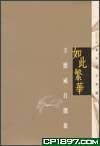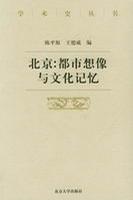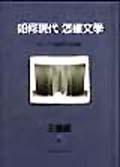-

From May Fourth to June Fourth
What do the Chinese literature and film inspired by the Cultural Revolution (1966-1976) have in common with the Chinese literature and film of the May Fourth movement (1918-1930)? This new book demonstrates that these two periods of the highest literary and cinematic creativity in twentieth-century China share several aims: to liberate these narrative arts from previous aesthetic orthodoxies, to draw on foreign sources for inspiration, and to free individuals from social conformity. Although these consistencies seem readily apparent, with a sharper focus the distinguished contributors to this volume reveal that in many ways discontinuity, not continuity, prevails. Their analysis illuminates the powerful meeting place of language, imagery, and narrative with politics, history, and ideology in twentieth-century China. Drawing on a wide range of methodologies, from formal analysis to feminist criticism, from deconstruction to cultural critique, the authors demonstrate that the scholarship of modern Chinese literature and film has become integral to contemporary critical discourse. They respond to Eurocentric theories, but their ultimate concern is literature and film in China's unique historical context. The volume illustrates three general issues preoccupying this century's scholars: the conflict of the rural search for roots and the native soil movement versus the new strains of urban exoticism; the diacritics of voice, narrative mode, and intertextuality; and the reintroduction of issues surrounding gender and subjectivity. -

从刘鹗到王祯和
-

如此繁華
-

北京:都市想像与文化记忆
2003年11月北京大学召开了“北京:都市想象与文化记忆”国际学术研讨会,本书乃会议论文的结集。书中关于北京的论述,采取了不同的角度和方法,讨论对象包括北京的文学(小说、诗歌、小品文)、艺术(绘画、戏剧、音乐)、教育、传媒、宗教、建筑、生活环境以及民族意识等,穿越诸多学科领域,多有创见。在对北京的“阅读”、“记忆”与“想象”中,兼及了学者的严谨、文人的温情以及漫游者的好奇心,是一本高质量的学术论文集。相信其出版将为崛起中的“北京学”添加一块有分量的砖瓦。 -

The Monster That Is History
In ancient China a monster called Taowu was known for both its vicious nature and its power to see the past and the future. Over the centuries Taowu underwent many incarnations until it became identifiable with history itself. Since the seventeenth century, fictive accounts of history have accommodated themselves to the monstrous nature of Taowu. Moving effortlessly across the entire twentieth-century literary landscape, David Der-wei Wang delineates the many meanings of Chinese violence and its literary manifestations. Taking into account the campaigns of violence and brutality that have rocked generations of Chinese - often in the name of enlightenment, rationality, and utopian plenitude - this book places its arguments along two related axes: history and representation, modernity and monstrosity. Wang considers modern Chinese history as a complex of geopolitical, ethnic, gendered, and personal articulations of bygone and ongoing events. His discussion ranges from the politics of decapitation to the poetics of suicide, and from the typology of hunger and starvation to the technology of crime and punishment. -

如何現代,怎樣文學?
作者以其浸淫中文文學批評研究多年的廣博學養,以小說為重點,探討現代及後現代文學研究的理論與實踐。藉著研讀十九、二十世紀的中文小說,本書觸及了下列議題:「被壓抑的」現代性;小說與政治、意識形態的辯證;文學的現代「性」之路;歷史的空間想像;流派、典律及典範間的互動關係;小說創作與文化生產。共集結評論文章二十一篇,對「現代」與「文學」間複雜的對話關係,大自國家神話與意識形態圖騰的形成,小至文類秩序與象徵體系的搬演,做深入而犀利的解讀。 十九世紀中葉以來,中國歷史文化的建構發生空前裂變。因應這一「千年未有」的變局,「如何現代」成為學者文人念茲在茲的課題,而「怎樣文學」往往被視為通往現代的主要門徑之一。現代與文學間複雜的對話關係,大自國家神話與意識形態圖騰的形成,小至文類秩序與象徵體系的搬演,在在可見端倪。時序到了另一個世紀初,由文學所銘刻、體現的各種現代及後現代經驗,依然值得我們另眼相看。 本書以小說為重點,探討現代及後現代文學研究的理論與實踐。自清末以降,小說成為文學現代化最重要的表徵,不僅形式實驗推陳出新,更憑敘事虛構見證或介入公私領域的蛻變。藉著研讀十九、二十世紀的中文小說,本書觸及了下列議題:「被壓抑的」現代性;小說與政治、意識形態的辯證;文學的現代「性」之路;歷史的空間想像;流派、典律及典範間的互動關係;小說創作與文化生產。所徵引的作品則包括清末的《品花寶鑑》、《三俠五義》以迄當代的《豐乳肥臀》、《狂城亂馬》等。